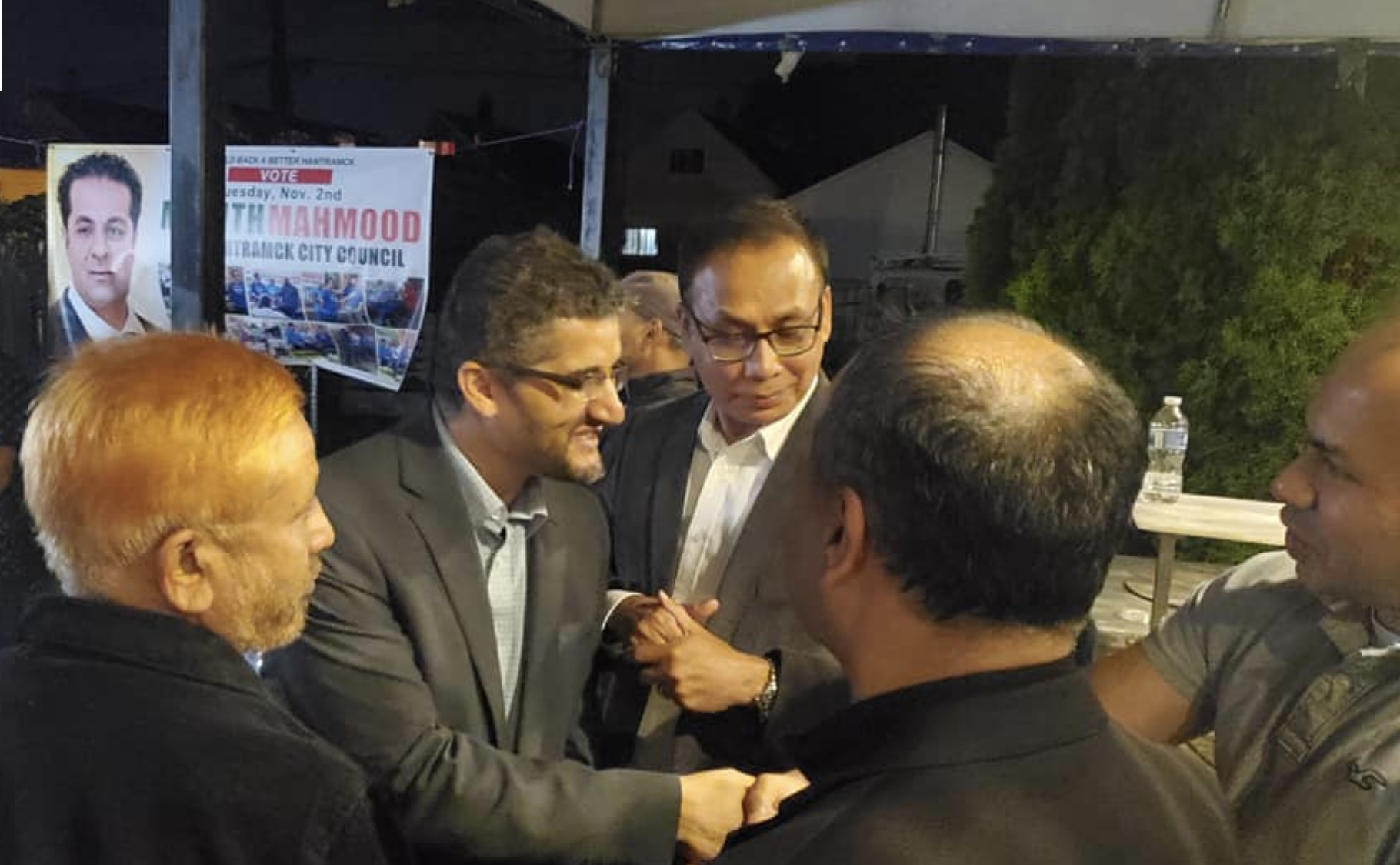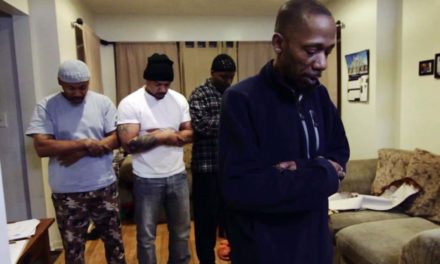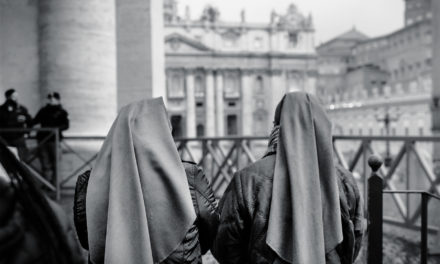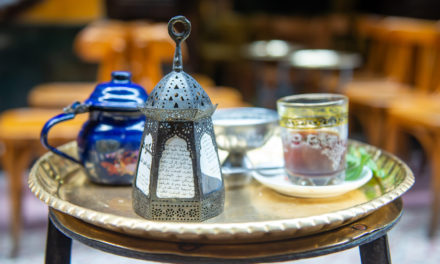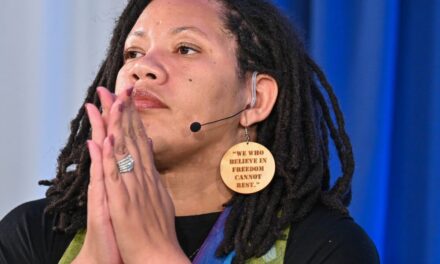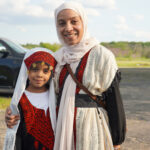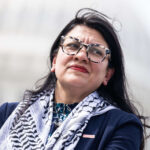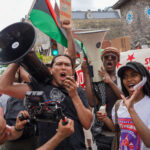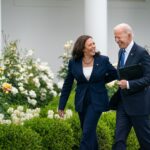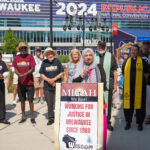Left: Hamtramck mayor-elect Amer Ghalib greets supporters in the Detroit suburb, where he will be the first Muslim mayor in the city’s history.
Voters in three Detroit suburbs chose, for the first time, mayors who are both Muslim and Arab American in historic local elections on Tuesday, marking a shift in political power to a region that has the largest concentration of Arab Americans in the U.S.
Dearborn, Dearborn Heights and Hamtramck, all located in southeastern Michigan, have seen decades of economic growth and cultural advancement driven by Arab American immigration and investment, but have struggled with representation. How Arabs are represented — both in Census data by not having a distinct ‘Arab’ category, or the lack of representation in elected office — has long been a concern in the community. Residents and experts say these elections reveal the maturing political progress – sometimes against the backdrop of racism or Islamophobia – of the Muslim and Arab Americans that have become integral to the fabric of those communities.
“Because [of] the lack of Census data on the Arab American community, there are debates about its size, but after the election of three Arab American mayors in the region yesterday, there is no debate about its growth and impact.” Matthew Jaber Stiffler, a research and content manager at Dearborn’s Arab American National Museum, told the PBS NewsHour after the election.
In Tuesday’s election, Michigan State Rep. Abdullah Hammoud defeated former State Rep. and former Wayne County Commissioner Gary Woronchak to become mayor of Dearborn, which carries the country’s largest concentration of Arab Americans, by 54.6 percent to 45.2 percent, according to unofficial election results supplied by the Wayne County Clerk.
“The people of Dearborn spoke loudly. They want change and bold leadership to tackle the challenges we face,” Hammoud said in a statement issued to media on Tuesday night. “We live in the greatest city in America and I’m excited about what we can achieve together when we rally around a common vision.”
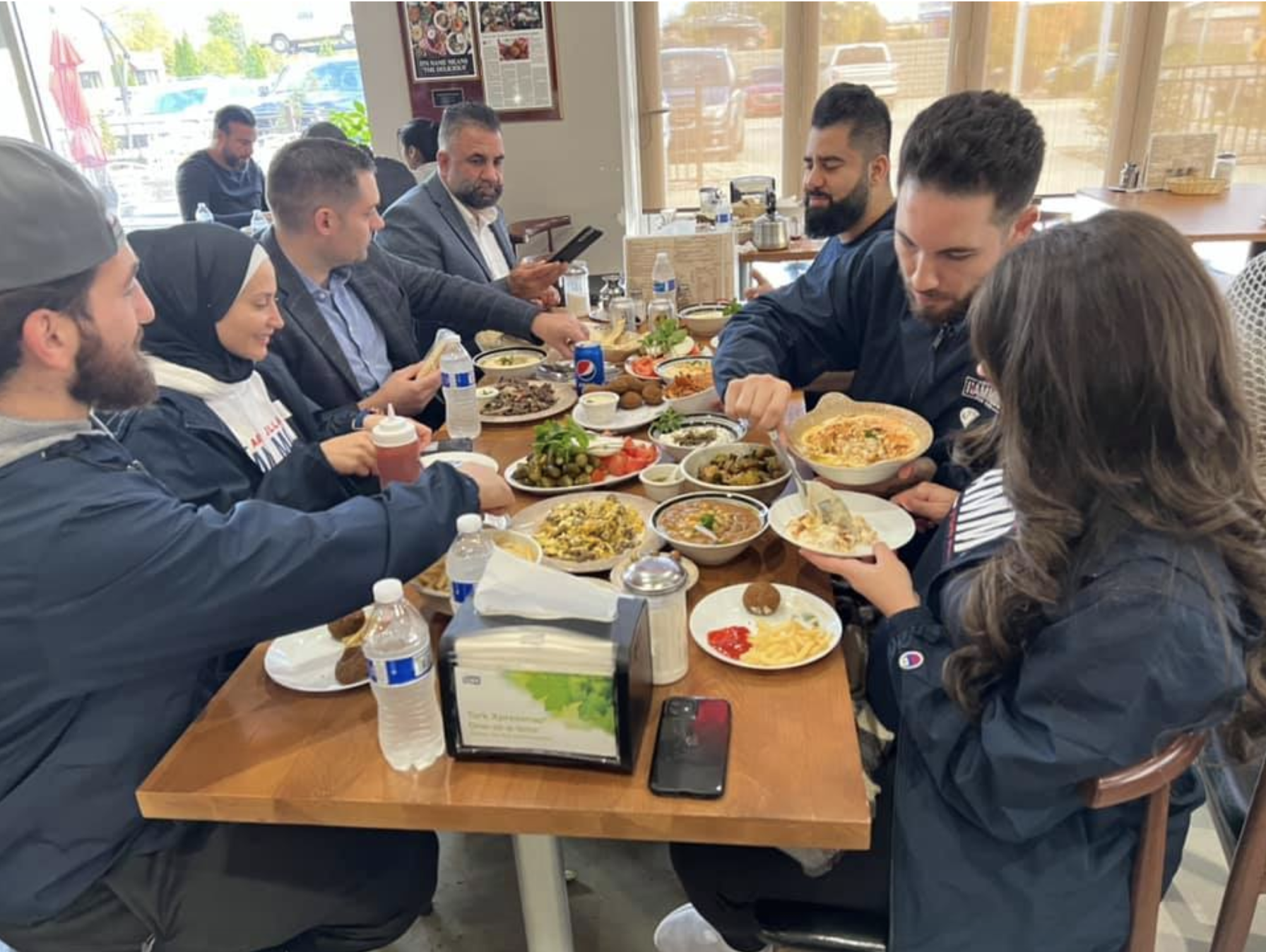
Dearborn mayor-elect Abdullah Hammoud, center right, dines with supporters at a restaurant in the Michigan city, where he will become the first Arab American and Muslim mayor in the Detroit suburb’s history. Photograph courtesy of Abdullah Hammoud
Hammoud’s campaign has said that his platform focused on Dearborn’s working families while seeking ways to reduce taxes without compromising service quality. Throughout the campaign, he released detailed plans and strategies to address chronic flooding and crumbling infrastructure – the city, like many in southeastern Michigan, was battered by torrential floods this summer – as well as reckless driving, inequities in health care, and underfunded pensions.
“Solving complex problems requires reimagining how we do things, especially as we work to create a more resilient city amid the pandemic,” Hammoud said. “Dearborn has everything it needs to thrive. We have innovative entrepreneurs and hometown corporations, rich culture and vibrant neighborhoods, we just need to unite and work together as one city.”
In a closely watched race in Hamtramck, a longtime destination for Eastern European immigrants and a Polish American stronghold for a century, Amer Ghalib won 68.2 percent of the vote to become the suburb’s mayor, upsetting incumbent Karen Majewski who brought in 31.4 percent. It was the first time Hamtramck voters elected someone who was not Catholic and Polish American in its hundred year history. Ghalib, an immigrant from Yemen, will become the city’s first Muslim mayor.
And in Dearborn Heights, mayor Bill Bazzi – who was appointed to the office in January 2021 after the previous mayor, Dan Paletko, died in December 2020 – legitimized his position through an election win. Bazzi was elected to both finish this partial term and to serve the next term, in both cases beating out Denise Malinowski-Maxwell by a wide margin.
A turning point
The oldest, largest, and most diverse Muslim American and Arab American communities in the U.S. are located in the metro Detroit area. Christian Syrian and Lebanese immigrants first arrived in the area in the 1880s, followed later by Palestinian, Iraqi, Chaldean, Yemeni, Indian, Pakistani, Bangladeshi Americans, and more, drawn to the area by work opportunities at Ford Motor Company in the 1920s.
Changes in U.S. immigration laws in 1965, as well as a long string of political conflicts abroad, also contributed to the growth and diversity of the region. But until now, the cities of Dearborn, Dearborn Heights, and Hamtramck, have never had Muslim or Arab American representation at the mayoral level.
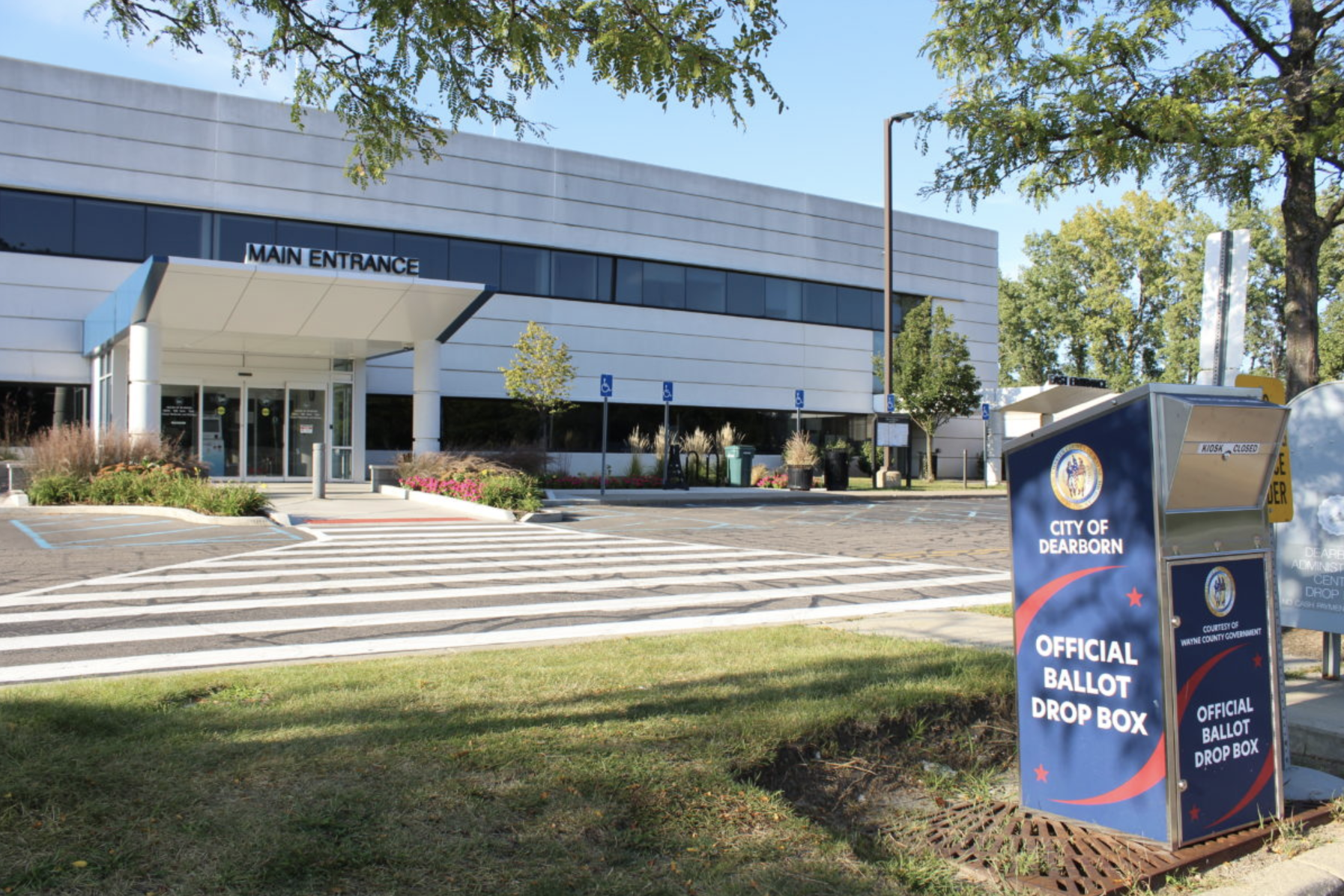
Dearborn City Hall and official ballot drop box, Dearborn, Michigan, Sept. 18, 2021. Photographer Frances Kai-Hwa Wang.
Although Arab Americans have been a part of Dearborn’s population for more than a hundred years, Dearborn’s leadership has not always been welcoming. In Mayor Mike Guido’s first campaign in 1985, he asked voters to help him solve what he characterized as the city’s ‘Arab problem.’
“For Dearborn, given the segregationist and anti-Arab history of the city’s leadership, it is particularly significant to have an Arab American mayor there,” Stiffler said.
Abed Hammoud, who first ran for mayor of Dearborn in 2001 and co-founded the Arab American Political Action Committee (AAPAC) in 1998, saw these mayoral and city council wins as part of the Arab American community’s continued political progress and engagement. His son, Mustapha Hammoud, won a seat on Dearborn City Council in Tuesday’s election.
“The new generation is showing it’s putting yourself forward, and it’s volunteering to serve in a way. And that’s a big deal for the community, because that continues to contribute to us being part of the main fabric.” Abed Hammoud told the NewsHour following the election. “So when [Abdullah Hammoud is] doing a good job for all of Dearborn, this also will continue opening doors for the rest of members of the community to be accepted as regular public servants.
“And [there] will be no more fear of running for office, saying my name doesn’t sound right or I don’t have the right last name or I’m not from this culture,” he added.
That Abdullah Hammoud, who is Muslim and the child of Lebanese immigrants, did not have to change his name or hide his religion while running for public office, is especially significant, Abed Hammoud said. “The people of Dearborn knew they were voting for an Arab and a Muslim. And he clearly did not win just by Arab votes. We don’t have those votes,” he said.
“[The] same thing goes for, obviously, for Dearborn Heights. And same thing for Hamtramck. These men have a lot of pressure on their shoulders to succeed, to excel, because they are gaining authority telling people we can serve or we can be very good.” Abed Hammoud said.
